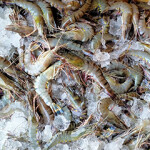Industry veteran calls for plan to save endangered orcas that doesn’t target Alaska’s Chinook fishermen

Northwest Aquaculture Alliance (NWAA) Board of Directors member Wally Pereyra has strong words for the Wild Fish Conservancy (WFC) regarding the battle it’s waging in a Seattle courtroom. According to the seafood veteran of over 50 years, his plan for saving orcas offers a better path forward for the endangered whale species and a staple regional fishery currently caught up in WFC’s legal crosshairs.
In March, Washington state nonprofit conservation organization WFC filed a lawsuit against the Northwest Oceanic and Atmospheric Administration (NOAA) seeking to “prevent overharvest of wild Chinook in Southeast Alaska, protecting prey of the endangered orcas.”
Chinook salmon, also known as king salmon, serve as the main prey for the southern resident killer whales (SRKW), which spend much of the year in the Puget Sound and Salish Sea region, and have seen their numbers plummet to less than 75 individuals in recent years. According to the WFC, fewer than 3 percent of the Chinook caught in Southeast Alaska originate in Alaskan rivers, with most of them coming from – and returning to – Washington and Oregon, thereby depriving the SRKW of prey.
Less than a month after filing its lawsuit, WFC filed a preliminary injunction to halt the Chinook fishery while the legal matter was being considered, or “until NOAA proves the harvest wouldn’t starve endangered Southern Resident killer whales.” The fate of some 1,600 Southeast Alaska Chinook salmon trollers, already affected by the COVID-19 crisis, is at hand.
In an opinion piece published by the NWAA, Pereyra called on the WFC not to “destroy a fishery that has been the economic backbone of Southeast Alaska,” and instead work on a plan “if [they] really want to help the whale population.”
Pereyra has proposed a plan with components that are familiar and have often been called for by conservationists and fishermen alike. The proposal, which calls for increases in hatchery production and reductions in ecosystem degradation, would also move to “immediately initiate a SRKW supplemental feeding program of lipid-rich farm-raised salmon.”
“It’s not a thing where you would snap your fingers and automatically you’d have a pod of killer whales … waiting for someone to throw them a salmon,” Pereyra told SeafoodSource. However, he said he’s confident that the orcas would adapt.
“You see what they’ve done at marine parks with orcas – they’ve very intelligent animals and they will respond to a food item,” he added.
Pereyra likens orcas to the bears in his neighborhood that pillage the garbage cans.
“I think orcas are opportunistic, if we would just give it a try,” he explained.
Other fisheries’ examples have informed Pereyra’s proposal and serve to lend it credence, he said.
“In Southeast Alaska, the longline black cod fishermen have really had a problem with sperm whales who have learned that the very tasty black cod come up on these long lines,” Pereyra said. “They’ve [homed] in on the sound of the hydraulic system being turned on and the line hauler pulling the longlines and they show up alongside the boat and start picking the fish off the longline. I think it’s very possible to take this inmate behavior or aptitude that animals have ... I suspect as this evolves the orcas will be right around the boat."
In Pereyra’s original op-ed, he also cites the case of an orphaned orca calf dubbed “Springer,” who was fed farmed Atlantic salmon while being rehabilitated for a release into the wild. After her release, Springer gave birth to two offspring.
“As time goes on, they become healthier, they start to put on weight,” he said. “As a result of that they become much more successful in their raising offspring, and the population all of the sudden starts to have a positive icon value and the population begins increasing.”
Alaskan Chinook fishermen have become the “unfortunate recipients of some bad outcomes that have not been their fault,” Pereyra noted. “They had nothing to do with what happened [with the dams] on the Columbia River.”
The targeting of the fishermen by WFC is uncalled for, he added.
“I don’t think it was appropriate that these fishermen who have a sustainably managed fishery [should be penalized]," he said.
NWAA Executive Director Jeanne McKnight admires Pereyra’s approach to the matter at hand.
“What Wally is suggesting is that the WFC, instead of doing an action that is going to actually harm an entire group up in Alaska, for example, and demonize people who fish for Chinook salmon, that they should embrace new ways of looking at bringing back food for the orcas as opposed to saying fisherman are to blame,” McKnight said.
Pereyra said the NFS' current plan is not adequate to meet the urgency of the problem facing both the orcas and local fishermen.
“The National Fishery Service’s salmon plan points out that at the most [stopping the season] would [result] in a 10 [percent] increase in the amount of prey ... That’s not the sort of thing that’s going to bring the orcas back,” Pereyra said. “We need something bold, something new, something imaginative.”
Photo courtesy of Zz Photography/Shutterstock






Share